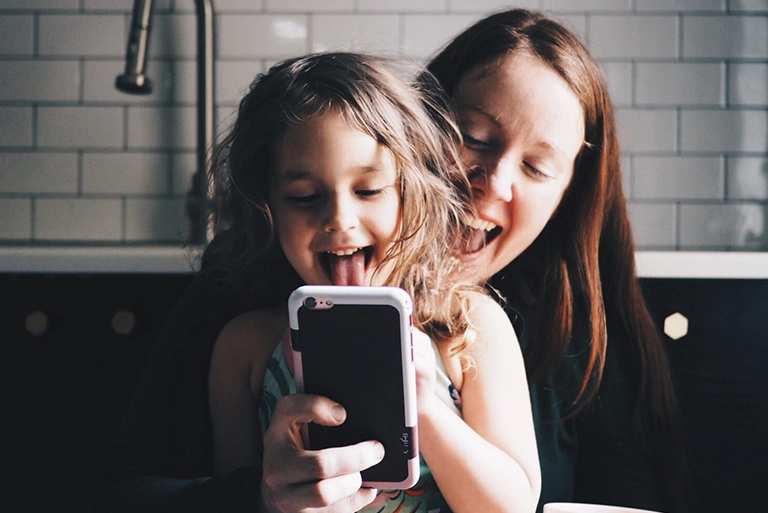In the past ten years, the rise of social media has changed the way we interact with one another. In 2005, only 5% of American adults used at least one social media platform and today, around seven in ten Americans use social media.
More of us are sharing moments, communicating, and engaging with one another digitally more than ever. Not only has it changed our relationships and way we interact, social media can also affect our mental well being.
Who is more susceptible to the negative impact of social media?
Unfortunately, social media is a place where the images and updates we see from others can create unrealistic expectations, feelings of inadequacy, and low self-esteem. People who are confident or know themselves well may not be as affected because they are more likely able to understand what’s realistic and what is not. On the other hand, people who are still trying to understand their own identity may be more impacted because they may more feel pressure to look a certain way to others. Children and adolescents in particular can be negatively affected. A recent article shares that “studies have suggested that young people who spend more than two hours a day on social networking sites are more likely to report psychological distress.”
How does it impact our mental health?
Social media can also potentially condition a need for approval. When you post online and see others reacting or commenting, it can make you feel good about yourself. As a result, you might end up consistently checking social media and finding it hard to break away and disconnecting from it. If you already have social anxiety or depression, social media can potentially make your symptoms worse. Social anxiety is when you fear judgment of others, and you may have a pattern of viewing things negatively. Instead of face-to-face interactions impacting your mental well being, it’s coming from online.
What can I do to address the negative impact from social media?
A lot of parents may feel anxiety about social media because they don’t understand it very well. I encourage parents to sit down and have a conversation with their kids where they can share their concerns and talk about ways to set boundaries and create trust. For example, you could tell your child that they can have a social media profile, but you have the password or you are also a friend so you can see their information. If you’re child is being bullied online, you could talk to the other parents or set your child’s profile to ‘private.’
If you’re using social media a lot, taking a moment to assess how it’s influencing your mood can help you identify if you need a “social media diet” or not. If it’s making you feel more anxious, limiting your own exposure to social media intake in a structured way can be helpful. One example could be giving yourself a set amount of time on social media, or allowing yourself social media time at the end of the day.
Reframing your perspective when you’re looking at social media can also help your mental well being. It’s helpful to remember that the updates and the photos you see only tell one side of the story.
About the author

Dr. Craig Dike completed his doctorate in clinical psychology at the University of Indianapolis, internship at Texas State University, and post-doctoral fellowship at UC San Diego/VA, where he specialized in psychiatric rehabilitation. Dr. Dike has additional specialty training in treating panic disorders, PTSD, phobias, and OCD. He enjoys working with primary care physicians helping patients engage in healthier behaviors by treating insomnia, reducing chronic pain, smoking cessation, and utilizing biofeedback. He continues to teach, provide workshops and lectures, as well as train residents in strong evidence based treatments. Whenever possible, he participates in clinical research that addresses a wide range of areas within the field of therapy and evidence-based treatments. Based in Texas, he enjoys spending time with family and friends over a craft beer and brisket, and enthusiastically supporting his favorite soccer team Tottenham Hotspur.



